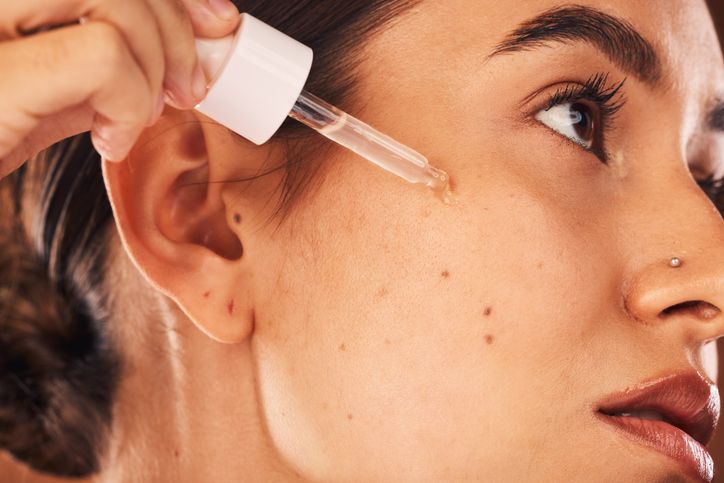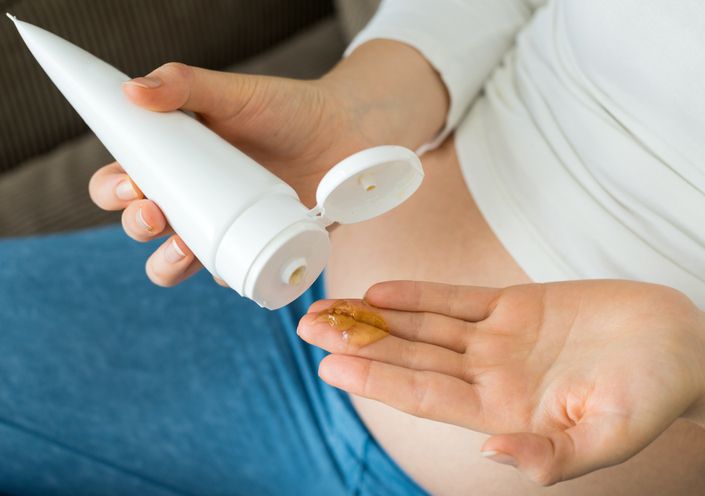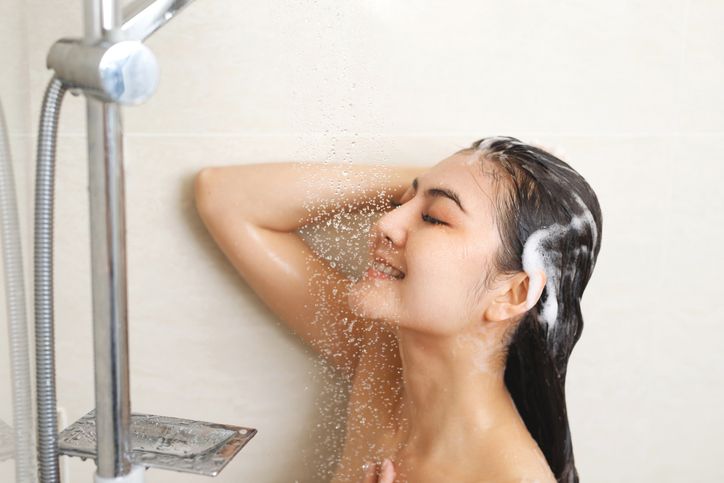
- Home
- Trend
- Weight Loss Strategies
- Acne Tips
- Hair Health Information
- Blemish Removal Tips
- Acne Scar Removal Tips
- Muscle Building Techniques
- Intimate Care Tips
- Postpartum Intimate Care
- Eye Bags Wiki
- Tips for Face Slimming
- Secret of Permanent Hair Removal
- Breast Enlargement Tips
- Cure to Snoring
- Marionette Lines
- Skin-Tightening Secrets
Cheek acne is more than just an aesthetic concern—it can have deeper implications for skin health and emotional well-being. Persistent cheek acne can lead to scarring, hyperpigmentation, and even conditions like acne mechanica.
What Considered As Cheek Acne?

Cheek acne refers to pimples, blackheads, whiteheads, or other acne lesions that specifically occur on the cheek area of the face. This region includes the sides of the face from the nose outward, extending towards the ears and sometimes down to the jawline. It can range from mild breakouts to more severe cystic acne and is often characterised by:
Blackheads and Whiteheads (Comedonal Acne)
• Blackheads occur when pores are clogged with a combination of dead skin cells and excess oil. The surface of these clogged pores oxidises, turning black, which is why they appear dark.
• Whiteheads are similar to blackheads but are covered with a thin layer of skin. The clogged pore remains closed, causing the white or flesh-coloured bump to appear on the skin.
Inflamed Pimples (Papules and Pustules)
• Papules are small, red, raised bumps that occur when a pore becomes inflamed. They are often tender and can feel sore to the touch.
• Pustules are similar to papules but are filled with pus. They appear as red bumps with a white or yellowish centre and can be painful and more noticeable on the skin.
Deeper Cystic Acne
• Cystic Acne is a more severe form of acne that affects deeper layers of the skin. It is characterised by large, painful, and swollen lumps or cysts that can be deep beneath the skin’s surface. These cysts are filled with pus and can cause significant discomfort.
• This type of acne is prone to scarring and can lead to permanent skin damage if not treated properly. Cystic acne often requires more intensive treatments to manage and prevent scarring.
Is it True that Only People with Oily Skin Get Acne?
It is not true that only people with oily skin get acne. While oily skin does produce more sebum (skin oil), which can clog pores and lead to acne, people with other skin types can also develop acne. Acne can affect individuals with dry, combination, or sensitive skin, especially if they use products that irritate the skin, block pores.
Factors such as genetics, hormonal imbalances, and certain medications can also lead to acne, regardless of skin type. Even those with normal skin can experience breakouts if their skincare routine is not suited to their needs or if they are exposed to external factors like pollution or stress.
So, acne is not exclusive to oily skin—it can affect anyone.
10 Things You Need to Know When Dealing With Cheek Acne
What makes cheek acne particularly tricky is the blend of internal factors, such as hormonal fluctuations, and external influences, including your skincare routine or lifestyle habits. Here’s a detailed look at 10 key considerations you may be missing when you treat acne on your cheeks:
1. Proper Cleansing Routine
Cleansing is the foundation of any acne treatment, but many people unknowingly worsen their cheek acne by using harsh soaps or over-cleansing. Cleansers with strong detergents can strip the skin of its natural oils, causing your sebaceous glands to overcompensate by producing even more oil. This can clog pores and lead to more cheek breakouts.
For those with cheek acne, it's important to opt for a gentle cleanser that removes impurities without disrupting the skin's natural moisture barrier. Cleansing twice a day—once in the morning and once at night—will help keep pores clean while balancing sebum production.
2. Pillowcase Hygiene
Your pillowcase may be an overlooked culprit when it comes to cheek acne. As you sleep, your skin comes into contact with oils, sweat, dead skin cells, and any residue from hair products, all of which can build up on your pillowcase.
Over time, this creates a perfect environment for bacteria that trigger facial acne. To minimise this, make it a habit to change your pillowcases every two to three days. Using a silk or satin pillowcase can also reduce friction, which may help prevent irritation that leads to breakouts.
3. Watch Your Diet
While acne has many causes, there's growing evidence that diet plays a role in triggering and exacerbating breakouts. Foods high in refined sugars, dairy, and processed carbohydrates can cause spikes in blood sugar and insulin levels, which may lead to increased sebum production and inflammation, making acne worse.
A low glycemic diet, rich in fruits, vegetables, whole grains, and lean proteins, can help control these spikes and reduce inflammation in the skin. Incorporating foods rich in antioxidants and omega-3 fatty acids can also support healthier skin and reduce cheek acne over time.
4. Exfoliation Mistakes
Exfoliation is essential for removing dead skin cells and unclogging pores, but over-exfoliation can do more harm than good. Using physical scrubs, especially those with large, rough particles, can cause micro-tears in the skin, leading to irritation and inflammation—two factors that worsen cheek acne.
Instead, stick to gentle chemical exfoliants like salicylic acid or glycolic acid, which dissolve dead skin cells without the abrasive action. These exfoliants can also penetrate pores to help reduce oil build-up and prevent future breakouts. Keep exfoliation to two or three times a week to avoid irritating your skin.
5. Skincare Products
Not all acne treatments are created equal, and some skincare products marketed as acne-fighting solutions can actually do more harm than good. Products that contain heavy oils or harsh chemicals might clog pores, triggering more breakouts. This is why it's crucial to choose skincare items that are labelled “non-comedogenic,” meaning they won’t block pores.
For moisturisers and sunscreens, look for oil-free formulas that won’t add unnecessary sebum to your skin. Opt for gentle ingredients like salicylic acid, hyaluronic acid, or niacinamide, which balance hydration while treating acne without irritation. A skincare regimen that focuses on soothing, hydrating, and calming inflammation is ideal for those with acne-prone skin.
6. Stop Touching Your Face
Touching your face throughout the day is a common habit, but it can be detrimental to your skin's health, especially when dealing with cheek acne. Your hands are constantly exposed to dirt, oils, and bacteria, and every time you touch your face, you transfer these contaminants onto your skin. This can lead to clogged pores and worsen existing breakouts.
Resting your face in your hands, picking at pimples, or even absentmindedly rubbing your cheeks can all contribute to the spread of acne-causing bacteria. Being mindful of this habit is key to preventing unnecessary flare-ups, and using a tissue or cleansing your hands frequently can reduce the risk.
7. Hormonal Balance
Hormonal fluctuations are one of the most common triggers for cheek acne, particularly in women. Hormones like androgens can stimulate sebaceous glands to produce more oil, increasing the likelihood of clogged pores and breakouts. These fluctuations often occur during the menstrual cycle, pregnancy, or even due to stress. If you notice cheek acne is more prominent at certain times of the month, it may be tied to hormonal imbalances. Balancing hormones with the right medication or supplements could lead to a significant improvement in acne.
8. Sun Protection
Sun exposure may feel like it’s helping to dry out acne, but in reality, it can worsen post-inflammatory hyperpigmentation and acne scarring, especially on the delicate skin of your cheeks. Over time, exposure to UV rays can cause more harm by damaging skin cells, leading to premature ageing, inflammation, and more breakouts.
Protecting your skin with a broad-spectrum SPF 30 or higher every day is crucial to prevent these issues. Opt for sunscreens that are labelled "oil-free" or "acne-safe" to avoid pore blockage. These sunscreens typically offer a lightweight, non-greasy finish that protects the skin without triggering further breakouts.
9. Dirty Makeup Products
Old or dirty makeup brushes and sponges are often breeding grounds for bacteria that can trigger acne on your cheeks. Regularly cleaning your makeup tools—at least once a week—can help prevent the buildup of bacteria and oil.
Additionally, make sure your makeup products are non-comedogenic to avoid clogging your pores. Throw away old makeup that has passed its expiration date to further reduce the risk of acne breakouts.
免費體驗
Acne Treatment
1 Minute Self-Registration
Date should not be before minimal date
Perfect Medical's Acne Treatment: The Long-Term Solution for Clear Skin

Perfect Medical’s Acne Treatment is a professional solution designed to target moderate to severe acne. This treatment uses advanced vacuum dermabrasion technology, which gently exfoliates oil, dirt, and dead skin cells from your skin. This non-invasive process clears clogged pores, reduces the occurrence of comedones and pimples, and promotes a smoother, clearer complexion.
Moreover, a medical-grade hydrating essence is infused into the skin, stimulating collagen production and tissue repair. This helps improve the skin's texture and resilience, targeting stubborn acne, blackheads, and blemishes while balancing sebum production to prevent future breakouts.
For cheek acne, this treatment offers a deep-cleaning solution that controls acne-causing bacteria, reduces inflammation, and prevents clogged pores, addressing the specific needs of acne-prone areas like the cheeks. With the added benefits of hydration and skin repair, this treatment not only eliminates acne but also enhances skin health for long-lasting, radiant results.
Hormonal Changes and How They Affect Cheek Acne
If you notice your issue has not gone away even though you tried multiple ways to prevent acne on cheeks, you might have to take a look at your hormones to treat cheek acne.
For some, cheek acne is closely linked to hormonal imbalances. Hormonal fluctuations—due to puberty, menstruation, pregnancy, or even stress—can increase sebum production, leading to clogged pores and acne breakouts.
Hormonal Birth Control
For those whose cheek acne is primarily driven by hormonal changes, such as fluctuations related to their menstrual cycle, hormonal birth control can be an effective management tool. Certain birth control pills regulate hormones by controlling the production of androgens, which can overstimulate sebaceous glands and lead to excess sebum production.
By balancing these hormone levels, hormonal birth control can help reduce oiliness and prevent acne formation. However, it’s important to consult a healthcare provider to determine if this option is appropriate for you, as responses to hormonal treatments can vary.
Managing Stress for Hormonal Balance
Stress is another key factor that can exacerbate hormonal acne. When you're stressed, your body releases cortisol, a hormone that can indirectly increase oil production and lead to breakouts. Incorporating stress-management techniques, such as meditation, yoga, regular exercise, or spending time outdoors, can help lower cortisol levels.
These habits not only promote mental well-being but also help balance hormones, reducing the likelihood of acne flare-ups, especially on the cheeks.
Dietary Adjustments for Hormonal Acne
Dietary habits can also influence hormone levels and acne. While the relationship between food and acne is complex, evidence suggests that certain foods—particularly those high in refined sugars and dairy—may trigger or worsen breakouts in some people.
Instead of focusing on restrictions, consider adopting a balanced, nutrient-dense diet that emphasises fruits, vegetables, lean proteins, and whole grains. These nutrient-rich foods help support hormonal health and overall skin resilience, potentially minimising the severity and frequency of cheek acne.
Last Few Words
Getting rid of cheek acne for good requires a multi-faceted approach. From at-home treatments like salicylic acid and benzoyl peroxide to professional solutions like Perfect Medical’s Acne Treatment and chemical peels, treating acne on your cheeks involves more than just applying a topical cream. It’s about addressing the root causes, such as hormonal imbalances, clogged pores, and improper skincare habits.
Whether you choose a natural remedy, lifestyle changes or opt for advanced therapy such as Perfect Medical's Acne Treatment, the key is persistence and choosing the right combination of treatments that work for your skin.
Acne Treatment免費體驗
Acne Treatment
1 Minute Self-Registration
Date should not be before minimal date
FAQ

1. What is the role of topical treatments in managing cheek acne?
Topical treatments, such as topical retinoids and topical antibiotics, are commonly used to treat cheek acne by helping to unclog pores and reduce inflammation. These treatments can regulate excess oil production and fight bacteria growth on the skin, preventing the development of new acne lesions. However, consistency in use is key to seeing results.
2. How does oily skin contribute to acne on the cheeks?
Oily skin produces excess skin oil, which can clog hair follicles, leading to acne formation. The excess oil creates an environment where acne-causing bacteria can thrive, stimulating acne breakouts. Using products formulated for oily skin, like non-comedogenic moisturisers, can help reduce acne by keeping pores clear while balancing oil production.
3. What is acne face mapping, and what does it say about acne on the cheeks?
Acne face mapping is the belief that the location of acne on the face can indicate underlying issues in the body. Acne on the cheeks is often linked to external factors such as dirty pillowcases or acne cosmetica from makeup, as well as internal factors like poor digestion. This method suggests that paying attention to your overall skincare routine and lifestyle habits can help prevent cheek acne.
4. Can prescription medications help with stubborn cheek acne?
Yes, prescription medications, both topical medications and oral prescription medications, can effectively treat stubborn cheek acne. Topical treatments such as topical retinoids can reduce clogged pores and prevent future breakouts, while oral prescription medications like antibiotics or hormonal therapies target acne from within, reducing inflammation and regulating oil glands.
5. How can lifestyle changes and skincare routines help prevent cheek acne?
A consistent skincare routine that includes gentle cleansing, exfoliation, and the use of topical treatments can help prevent cheek acne. Additionally, lifestyle changes such as avoiding greasy products (to prevent pomade acne), managing stress, and regularly washing pillowcases and makeup brushes can greatly reduce the occurrence of acne on the cheeks. Combining these efforts can lead to clearer skin over time.








